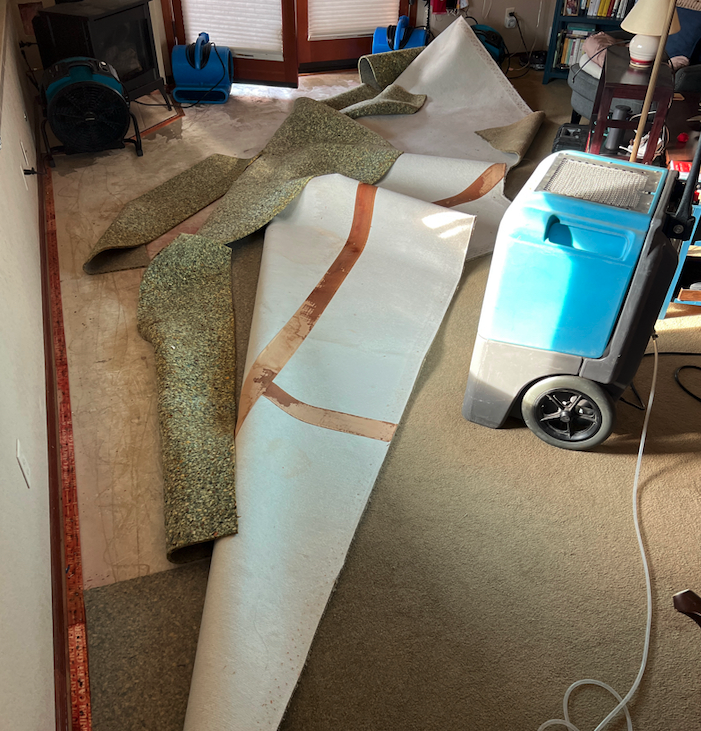8 Things To Do If Your Home or Building Floods
/Experiencing a flood in your home due to heavy rain can be a stressful event. In fact, the owner of our company, Kyle, has had his basement flood twice and knows first hand the stress, work, and expense that can be involved. It's imperative to act quickly to minimize damage to your home and stay safe. Below is a general outline on what to do if rainwater floods your home.
1. Safety first: Prioritize the safety yourself, your family and your pets. If the flooding is severe, evacuate the premises immediately. Avoid contact with floodwater by all possible means, as it is possible for it to be contaminated or electrically charged.
2. Disconnect utilities: If safe to do so, turn off electricity and gas from the main switches or valves. This is an important step, but typically only necessary if the flooding has resulted in standing water inside the home.
3. Document: Before you start cleaning up, take photographs and videos of all of the affected areas for insurance purposes. Documenting this accurately can greatly assist in the event you file an insurance claim.
4. Water extraction: Once it's safe to be in the home start removing the water. If the flooding is minor and on hard flooring, you may be able to use a wet/dry vacuum, buckets, or mops. However, if the flooring is carpet and/or is standing water, it is best to contact a local professional water mitigation company.
5. Dry Out the Area: After removing the water, dry out the affected area to prevent mold and mildew growth. Use dehumidifiers and fans to aid in the drying process. You will want to make sure that the type of dehumidifier used is an LGR (Low-Grain Refrigerant) dehumidifier, as it will get the humidity levels much lower than normal dehumidifiers. Leave the equipment running for typically 2-3 days to ensure proper drying.
6. Clean and Disinfect: Thoroughly clean all affected surfaces and remove anything that does not dry out in 48-72 hours (carpet, pad, etc.). Use high quality disinfectants (Mediclean is our recommendation) to kill bacteria that may have resulted from the floodwater.
7. Insurance: Contact your insurance company as soon as possible. Provide them with the documentation of the damage and double check what your deductible is. Depending on the amount of your deductible and the extent of the water damage, it may or may not be worth filing a claim.
8. If in doubt, hire a professional: A professional water mitigation company will not only be able to more effectively remove the water and dry out your home or commercial building, but they will also have tools such as moisture meters and thermal imaging cameras to ensure that all materials are properly dried out.





